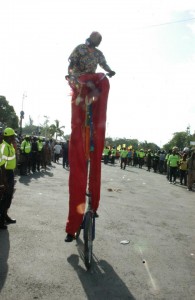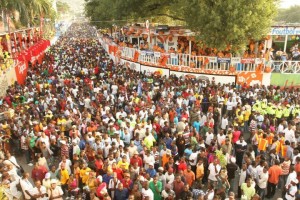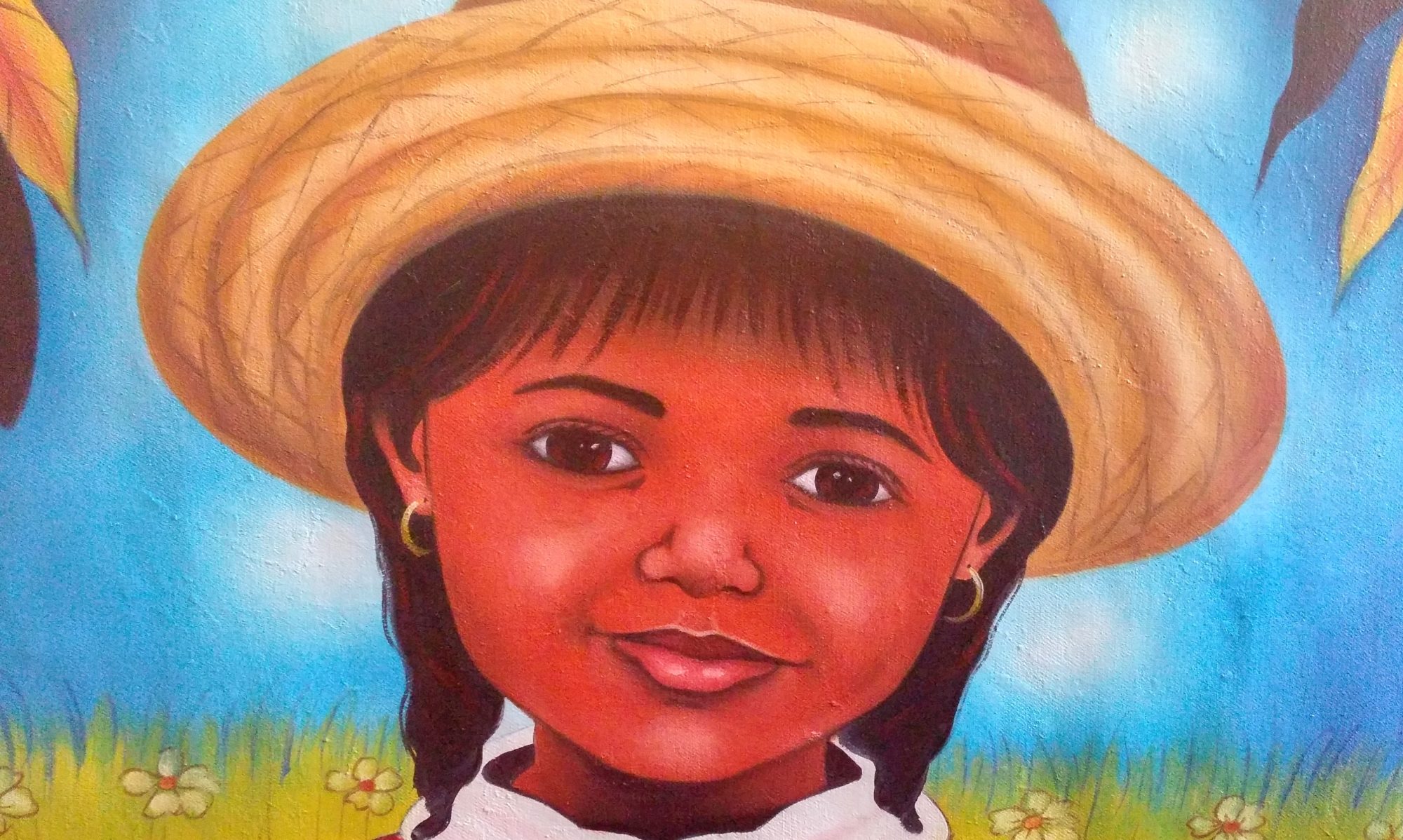 Sometimes you have to stop and smell the roses, even if they’re artificial. For three days, a man on stilts towered over stick-on orchids, synthetic hibiscuses, plastic sunflowers, and a throng of revelers garlanded in polyester leis. A carnival of flowers—in the tropics—ought to be ablaze with, say, fresh cut flowers. But when that country suffers from acute deforestation, you have to make do with the faux kind. And if you happen to be a flower snob like someone else I know, Haiti’s soil is just begging for you to roll up your sleeves and plant a few good seeds.
Sometimes you have to stop and smell the roses, even if they’re artificial. For three days, a man on stilts towered over stick-on orchids, synthetic hibiscuses, plastic sunflowers, and a throng of revelers garlanded in polyester leis. A carnival of flowers—in the tropics—ought to be ablaze with, say, fresh cut flowers. But when that country suffers from acute deforestation, you have to make do with the faux kind. And if you happen to be a flower snob like someone else I know, Haiti’s soil is just begging for you to roll up your sleeves and plant a few good seeds.
Pictures of smiling officials surrounded by a bevy of carnival queens in kaleidoscopic gowns grace the news. Frowning critics want to know what there is to be so giddy about in a quake-ravaged country. They counter the flowery images with grim reminders that hundreds of thousands still live in tents, prompting the president to defend the carnival’s hefty price tag while clean water remains a distant dream. Perhaps the Carnaval des Fleurs was not about clean water. Or flowers.
 This was the first celebration Port-au-Prince had seen since the massive earthquake nearly totaled the city back in 2010. Those photographs of dancers gliding merrily in front of the sagging National Palace can’t be real; are they? The abysmal poverty just beyond the ornamented float route is very much a reality. Perhaps the dollars that were spent on the festivities could have fed the hungry instead. Still, how much is too much to pay to see a people celebrate life for a few days?
This was the first celebration Port-au-Prince had seen since the massive earthquake nearly totaled the city back in 2010. Those photographs of dancers gliding merrily in front of the sagging National Palace can’t be real; are they? The abysmal poverty just beyond the ornamented float route is very much a reality. Perhaps the dollars that were spent on the festivities could have fed the hungry instead. Still, how much is too much to pay to see a people celebrate life for a few days?
In my country we have a saying: “Aprè bal, tanbou lou.” Indeed, drums are heavier when they’re being hauled back from the dance. The more elaborate and enjoyable the ball, the heavier the drums feel afterwards. But we have another saying: “Men anpil, chay pa lou.” Many hands working together make heavy drums feel light.
 Haiti’s last Carnival of Flowers took place so long ago, few people had even heard of it. Perhaps Haiti—like an ancient tree that was cut down—has sprouted new roots and is pushing her way up from under mounds of dirt.
Haiti’s last Carnival of Flowers took place so long ago, few people had even heard of it. Perhaps Haiti—like an ancient tree that was cut down—has sprouted new roots and is pushing her way up from under mounds of dirt.
Perhaps all the seemingly unnecessary merry-making on roads soaked with the blood of quake victims in the not-so-distant past is an example of how life always triumphs. Perhaps Port-au-Prince is the birthplace of paradise regained.

